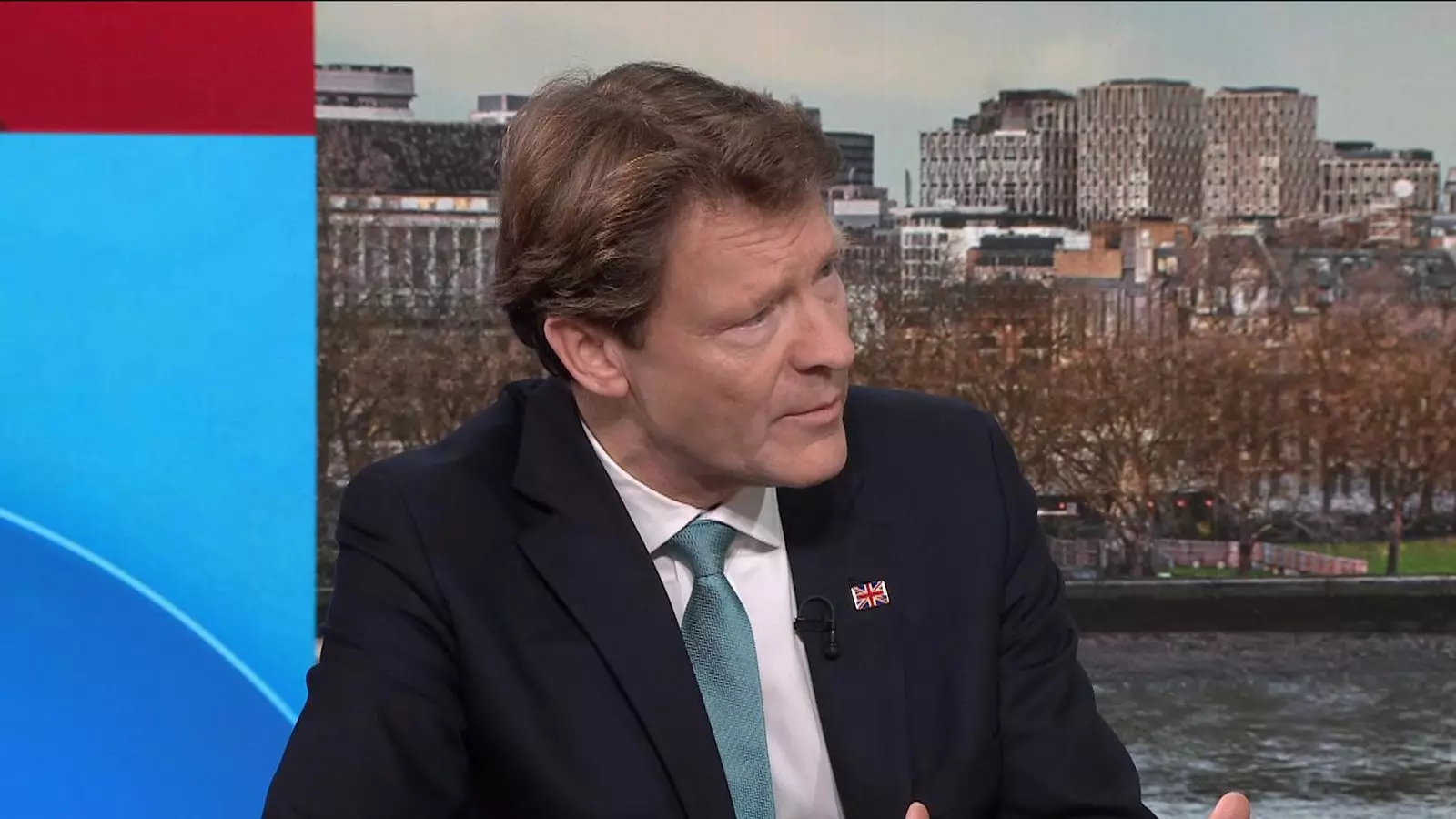In every corner of politics, we find stories that disturb the delicate balance of power and responsibility. The most recent scandal involving Reform UK and its members reveals the unsettling truth behind the often-glamorized world of political leadership—bullying and intimidation lurk beneath the surface. Richard Tice, deputy leader of Reform UK, justified the suspension of MP Rupert Lowe, who has faced serious allegations from two women about bullying and threats. The gravity of these accusations shouldn’t simply be dismissed or swept aside but must serve as a basis for a broader discussion about the toxic culture that can permeate political environments.
The mention of political misconduct too often conjures images of scandalous headlines rather than stewing conversations about institutional reform. For every high-profile case that garners media attention, countless others fly under the radar, suffocating individuals who have the courage to speak out. In a system that should be defined by transparency and integrity, we find that those in power often prefer darkness over the light of accountability. This scenario surrounding Lowe is a stark reminder that the shadows in politics are relentless in stifling dissenting voices.
Timing and Transparency: A Double-Edged Sword
Critics have pointed to the peculiar timing of the suspension announcement, raising questions about whether the leadership of Reform UK has used these allegations as a weapon against Lowe, who recently challenged Nigel Farage’s influence within the party. Tice states that the allegations surfaced gradually, necessitating careful consideration before taking any action. However, the sad irony lies in the fact that Tice himself has asserted that the party’s strong stance against covering up such incidents is what distinguishes them, creating a facade of integrity while still acting within a politically charged context.
The discussion about timing moves beyond mere conjecture; it reveals an uncomfortable threshold where the lines between genuine outrage and opportunistic maneuvering blur. While it may seem that Tice is opting for the high road, one must ask—at what cost? The consequences of mismanagement of these situations extend beyond individual reputations to envelop the credibility of the entire party. Essentially, the urgency to act on situations like Lowe’s is one of moral obligation, rather than political expediency.
A Culture of Fear and Intimidation
Lowe vehemently denies the allegations against him, presenting his challenges to the existing party structure as a rational response to institutional failures. Common in political cultures layered with masculinity and bravado, the tussle over authority often turns hostile. The notion of confronting bullying should not only envelop the perceived aggressors but also extend to the systems that permit such behavior to proliferate. The failure to foster an environment of accountability paves the way for toxic dynamics that result ultimately in a culture of fear.
It is imperative that political parties, especially those self-identified as progressive or reform-oriented, don’t merely pay lip service to issues of conduct and respect. They must instead embody the values they seek to project. When we learn that a group of supposed leaders is enmeshed in intricate webs of hostility and harassment, it only highlights the urgent need for changes that transcend mere policies. Such reforms would advocate for genuine accountability, shifting the paradigm from an environment that punishes whistleblowers to one that empowers them.
Echoes of Bullying in Politics
Lowe’s fighting stance on the topic of deportations hints at the broader conversation, where political platforms sometimes pivot on the exploitation of divisive rhetoric. Language can be a tool for empowerment or a weapon of destruction, and unfortunately, in the case of Lowe’s comments on illegal migrants, it seems to tilt toward the latter. When political figures invoke aggressive policies while simultaneously creating a hostile work environment, one can’t help but wonder how deeply the underpinnings of such ideologies are rooted in a culture that thrives on conflict rather than collaboration.
While some might praise candidness as a virtue in political discourse, we must firmly confront how this candor often veers into hostility when ambition overshadows integrity. The direct challenge to leadership, as Lowe exercises with Farage, exemplifies bravery, yet it is crucial to differentiate audacity from aggression, politics from bullying. The belief that a hardline approach or personal attack is synonymous with strength is a dangerous fallacy that undermines the principles of democratic engagement.
The call to action is clear—political actors must rise above predatory tactics and allow moral ethos to guide their interactions. Only then can we expect a political landscape where courage and collaboration foster a brighter future rather than stagnate into silence or disdain.

